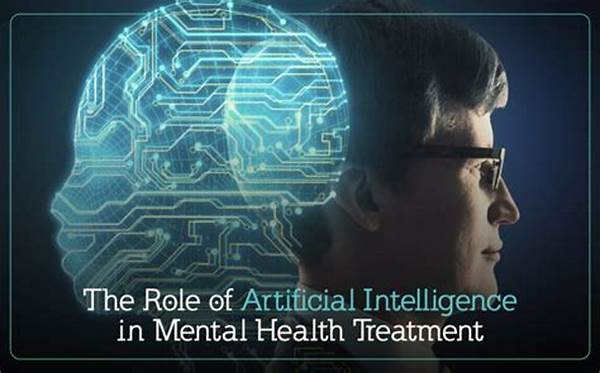In today’s fast-paced world, where the pressures of academic achievement and personal expectations often weigh heavily on students, mental health support has become a vital component of the educational system. With anxiety, depression, and stress reaching unprecedented levels among students of all ages, the need for timely and accessible mental health services is more crucial than ever. Enter Artificial Intelligence (AI), a revolutionary force that’s making waves in industries ranging from healthcare to finance, and now increasingly in education. But what exactly is the role of AI in student mental health support, and how is it reshaping the landscape for educators and learners alike? The promise of AI lies in its ability to provide personalized, on-demand support, breaking down barriers that often prevent students from seeking or receiving the help they need.
Read More : Tambakbet Reveals Indonesia’s Plan To Embed Ai In School Curriculum
Imagine this: a student pondering over whether to confide in someone about their overwhelming stress levels, but hesitant due to stigma or logistical hurdles. Here enters a friendly AI chatbot, ready to engage without judgment, offering a listening ear round-the-clock. This scenario is not science fiction; it’s a growing reality thanks to technological advancements in AI. Universities and schools are increasingly adopting AI-driven platforms that offer immediate, confidential, and continual mental health services. But what makes AI truly unique in this setting is not just its availability, but its capacity to learn and adapt to each student’s mental health journey, providing insights and interventions tailored to their specific needs.
AI is not here to replace human therapists but to augment the reach and efficacy of mental health services. By analyzing patterns in communication, behavior, or even biometric data, AI can flag early signs of mental health issues, enabling preventative measures that can be crucial for student well-being. The result is a dynamic, supportive, and responsive system that complements existing services and creates a holistic support environment.
Transforming Mental Health Support with AI
AI’s transformative ability in providing timely and personalized care dramatically shifts the traditional paradigms of mental health service delivery in academic settings. Imagine an AI tool capable of recognizing the subtle signs of deteriorating mental health even before students themselves become aware. Through dual combinations of data analysis and real-time interactions, AI ensures these early warning signs do not go unnoticed, paving the way for timely intervention and care.
The role of AI in student mental health support extends beyond mere monitoring; it promotes active engagement strategies. By utilizing AI-powered applications that prompt students to engage in mindfulness exercises or cognitive behavioral tasks, schools can foster proactive mental wellness habits. AI-driven insights enable educational institutions to create targeted wellness programs, thus facilitating environments where mental health is not an afterthought but a sustained focus.
Enhancing Accessibility and Reducing Barriers
In a world dominated by quick technological shifts, accessible mental health support stands paramount—not only eliminating logistical hurdles but dramatically reducing stigma. Through AI, students need not rely on fixed office hours or endure travel constraints to access support. They find an ally in AI through health initiatives like round-the-clock assistance offered by AI-driven applications.
Additionally, by streamlining administrative processes, AI enables human counselors to focus more deeply on providing effective care. The synergy created between AI tools and professional therapists ensures that no student’s plea for help falls through the cracks. The role of AI in student mental health support includes creating bridges, not walls, overcoming traditional barriers, and providing accessible paths for everyone who seeks assistance.
Discussion on The Role of AI in Student Mental Health Support
AI in mental health support can be seen as a new chapter in educational reforms, where mental health becomes integrated with the student learning experience. Schools adopting AI tools ensure students receive holistic education, considering their emotional and psychological needs as integral to success.
AI enables the creation of personalized mental health journeys tailored to each student’s unique requirements and challenges. It marks a significant shift away from one-size-fits-all approaches to individualized mental health care strategies.
The role of AI in student mental health support is reshaping how educational institutions provide care, offering effective solutions while addressing unique challenges faced by today’s youth. By embracing this technological evolution, educators, policymakers, and mental health professionals have the opportunity to create supportive academic environments that not only benefit students but transform future societal expectations surrounding mental health.


